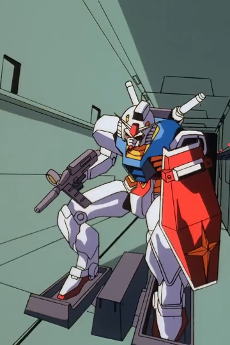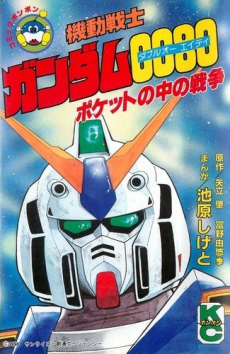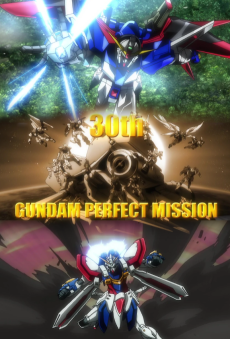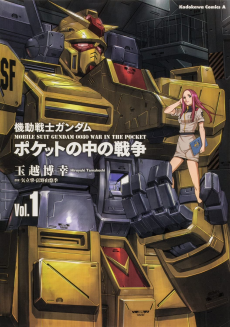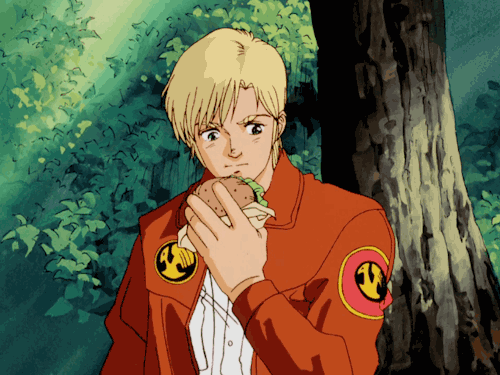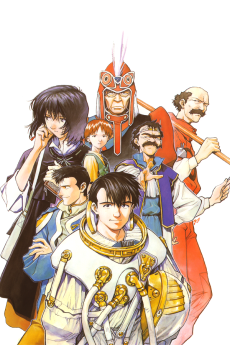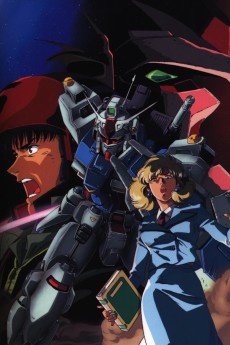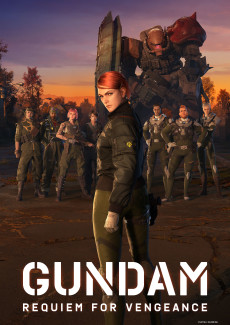KIDOU SENSHI GUNDAM 0080: POCKET NO NAKA NO SENSOU
STATUS
COMPLETE
EPISODES
6
RELEASE
August 25, 1989
LENGTH
27 min
DESCRIPTION
The Side 6 space colony is a neutral oasis in the war between Zeon and the Earth Federation. Alfred Izuruha, a ten-year-old boy, finds relief from the tedium of schoolwork by following the war's progress and collecting military memorabilia. When rumors that the colony is hiding a Federation mobile suit development program bring Zeon special forces to Side 6, Alfred views them as a source of additional excitement. But, as the Zeon mission becomes more urgent and both sides take increasingly desperate measures, he might be in for an unexpectedly close look at the reality of war.
CAST

Bernard Wiseman

Kouji Tsujitani

Christina Mackenzie

Megumi Hayashibara
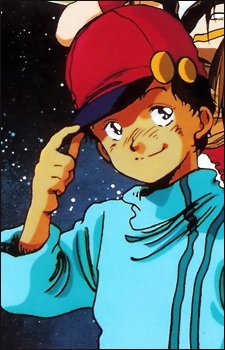
Alfred Izuruha
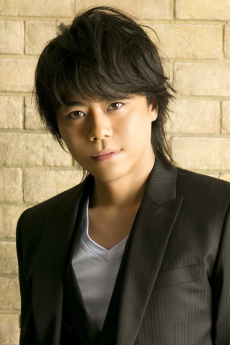
Daisuke Namikawa
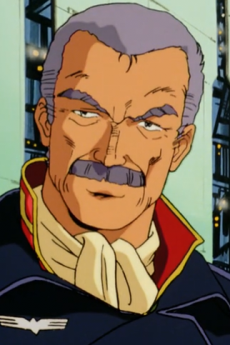
Hardy Steiner
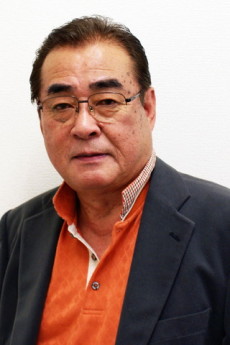
Yousuke Akimoto
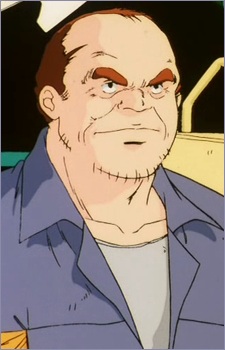
Mikhail Kaminsky
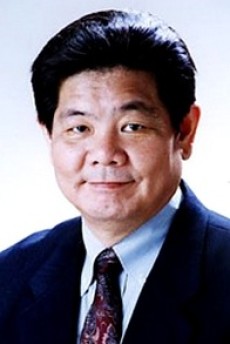
Yuu Shimaka
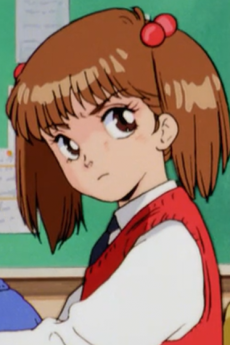
Dorothy

Konami Yoshida
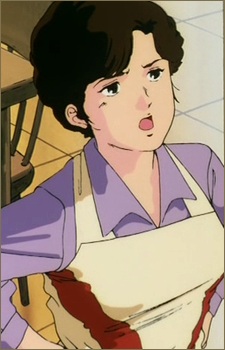
Michiko Izuruha

Ai Orikasa

von Helsing

Masato Hirano
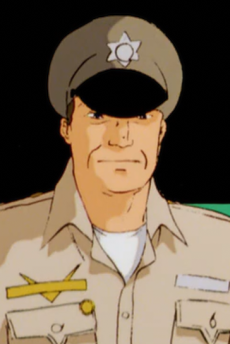
Keikan
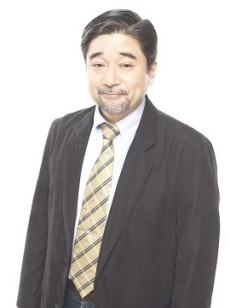
Mitsuaki Hoshino
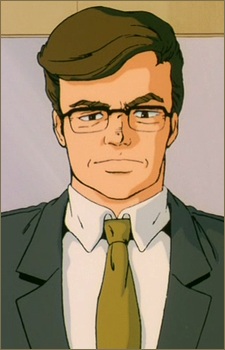
Ems Izuruha
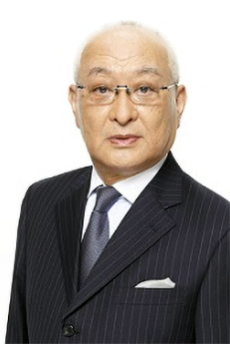
Jun Hazumi
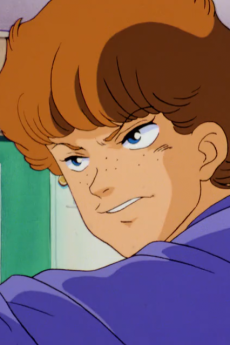
Chay

Chiko
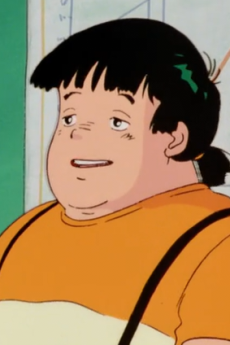
Telcott

Ken Suzuki
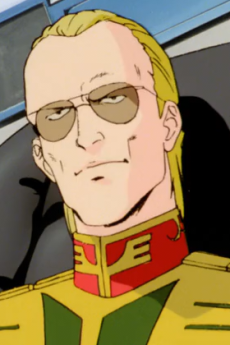
Killing
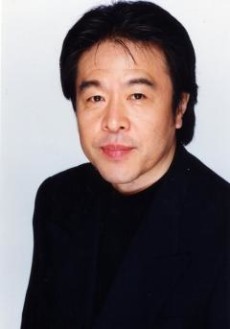
Kouji Totani
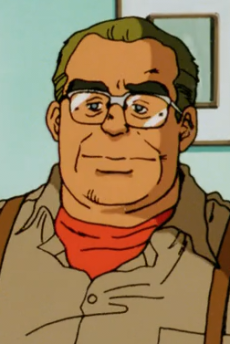
Chris no Chichi
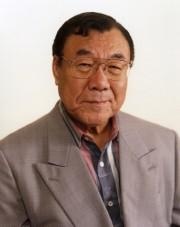
Yasuo Muramatsu
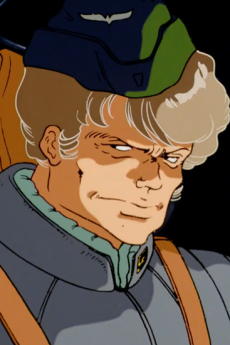
Andy

Mitsuaki Hoshino
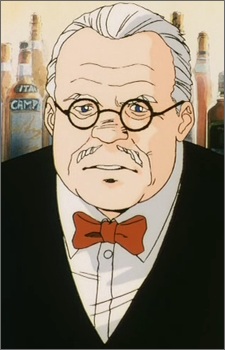
Charlie
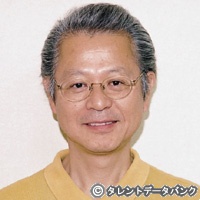
Minoru Inaba
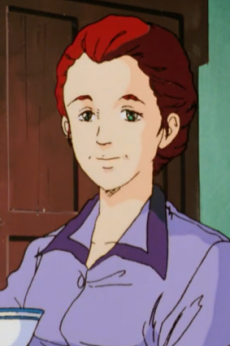
Chris no Haha

Mari Nakamura
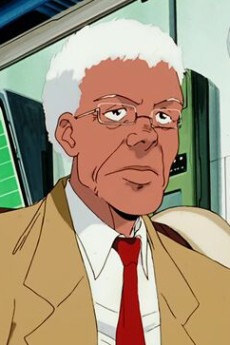
Dick Lumnba
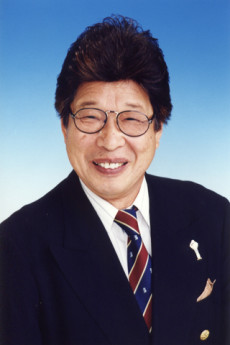
Hiroshi Masuoka
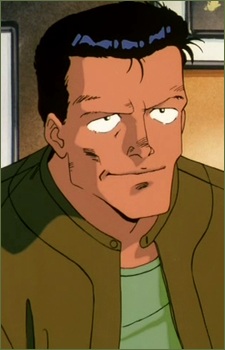
Gabriel Ramirez Garcia
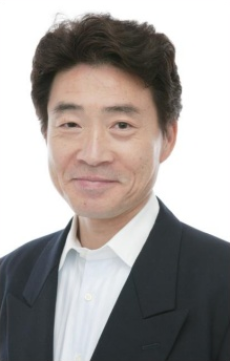
Bin Shimada

Stuart

Ken Gouto
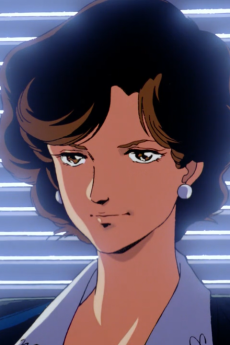
Sensei
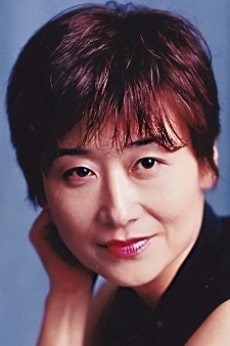
Yoshiko Sakakibara

Lugenth

Nobuyuki Furuta
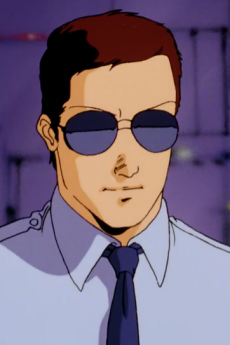
Kensa-kan

Mitsuaki Hoshino

Gishi

Ken Gouto

Shirei-kan

Nobuyuki Furuta
EPISODES
Dubbed
RELATED TO KIDOU SENSHI GUNDAM 0080: POCKET NO NAKA NO SENSOU
REVIEWS

CodeBlazeFate
89/100The devastation feels so real...and yet, it feels so wonderful.Continue on AniListIn the hellfires of the battlefield, people are predestined to die. The tragedy of this reality doesn’t impact the dead, or usually even the survivors, but instead, the families of those who lost their lives. Seeing war firsthand can be as traumatizing as losing someone in it. In fiction, we often take for granted the sheer levels of brutality on display in shows like this, as we relish in the spectacle of the fights and the possible charm of the combatants, at least until one we care about dies. Gundam has nearly always embodied this as a franchise, but nowhere has the franchise been more poignant in regards to this than in 0080, where the effects are at its most tangible.
Putting this into perspective, there have since been anime that showcase scenes of soldiers scrambling in terror in vain attempts at survival, soul-crushing amputations and deaths, and the most heart-breaking rendition of the infamous colony drop from the One-Year War. For 0080 to be more emotionally resonant than this is a testament to this show’s quality, as two decades later it stands the test of time. There are a myriad of reasons as to why, but the most important is that it feels so real. Its characters are so lifelike that you can’t help but get attached. It makes a far greater case for getting attached to each of the people involved in 6 episodes than most other installments do in 4 or 8 times that amount.
It is very apparent that the those involved -particularly screenplay writer Hiroyuki Yamaga- truly understand people. Only with such understanding can such realistic portrayals be crafted. Most immediately, Alfred Izuruha, the protagonist of this harrowing tale, stands out as a wonderfully real depiction of a child in his elementary school days. Him and the other kids bickering about things only children would constantly tease and fight over, and succumbing to propaganda as they demonize one side and apotheosize the other. Just like a myriad of other children, he gets into trouble about homework and test scores, and he plays video games whenever he sees fit. My, what simpler times, but a child has to grow up someday. An integral part of growth is having to see the world for its darkest aspects. What more horrifying way to do that than to become part of an operation and witness the carnage firsthand? Seeing him change and mature due to interactions with those around him in this war is heart-wrenching, especially towards the end after a painful reminder that even with his growth, he is still a child, and therefore, will react like one in the face of lies and destruction.
The people he interacts with are exactly as stated: people. Bernard -Bernie, if you will- stands out especially as the most complicated person of the lot. A beleaguered Zeon rookie stuck playing the role of a brother to Alfred as they are swept up in an operation of war. Seeing the two bond as brothers -as false as the relationship is- is nothing short of heartwarming. The relationship the two have with nextdoor neighbor, Federation member, and sweetheart Christina is as classically real as it gets, most especially on Bernie’s end. This makes the reality of the situation all the more soul-rending, as the dramatic irony obliterates us as we brace for the impact of whenever these three cross pass...only for it to go in a more more poignant and real way than anticipated. The finale for these three is honestly beautiful, mournful as well, but above all else, it is peaceful.
The other Zeon soldiers the two boys are tied to are entertaining as well. We get to know little about them, but each have a moment in the spotlight, such as Ramirez’s concern for those who he outranks, to Steiner sitting on a bench with a friend, discussing the finality and futility of their situation. We feel more for the deaths of some of these men than we do for several of the caricatures that infest a myriad of lesser installments. The profound effect they have on Alfred is the most beautiful part about these endearing soldiers in this tragedy of war. The brutal manner their operation plays out is bone-chilling, and the aftereffects are soul-crushing in magnificent ways.
There are of course, oversights and conveniences for the sake of creating or escaping drama, as rare as they are. However, they detract little from the beauty and craft at work, both in writing and creating these people, and displaying the carnage in beautifully dreadful detail. The music that plays compliments the situations, and the ending theme deals the final blow to the fragile heart in its final rendition. The devastation feels so real...and yet, it feels so wonderful.

Pockeyramune919
92/100This pocket-length Gundam show is the best in the series when it comes to exemplifying war's horrors.Continue on AniListThis review contains spoilers for Mobile Suit Gundam 0080: War in the Pocket

Since its debut in 1979, one of the things that Gundam as a series has been (generally) committed to is showing the horrors of war. Time and time again, we see child-soldiers thrust into powerful war machines, the weight of the world crushing their shoulders. Through their tribulations, they are often robbed of their childhood as they’re forced to take more and more lives, see more and more carnage. This commitment to showcasing the gravity of armed conflict can be seen in the name of the titular mobile suit itself: "Gundam," a portmanteau of "gun" and "freedom." The "gun" tells viewers exactly what this mobile suit is, a weapon: a tool to carry out acts of violence in order to achieve a particular goal. The goal in question is protecting and/or obtaining "freedom." It's an important ideal, thus suggesting, in an ends-justify-the-means fashion, that only an important cause calls for drastic measures. If one were to trivialize "Gundam," than its components would be trivialized and taken for granted as well: viewers might become desensitized towards violence and take freedom for granted. One might think that, for this reason, Gundam is careful to not glorify war, but quite the contrary is true, it's no stranger to it. While Gundam doesn't generally depict the main character as enjoying fighting (unless the fighting isn't depicted as dire) war and battles are made appealing through less overt methods. It can be as simple as color: to appeal to a younger audience, Sunrise made Tomino change the Gundam to look less militaristic and sport the vibrant colors it is famous for. The battles themselves are enticing and absolutely an exercise in spectacle. It's hard to get audiences to see the battles as horrific when they're often depicted as being so awesome to look at. However, more than anything, I'd say the main reason why war is often glorified in Gundam is due to Gunpla. Collecting, assembling, and displaying your favorite Gunpla seems to ask fans to divorce themselves from the bloody contexts surrounding the Gunpla. After all, you can appreciate how cool the suits look without thinking about how many people it murdered.
For these reasons, Gundam, more than some other mecha I've watched, often struggles to achieve a truly dark tone. While certain shows such as Iron-Blooded Orphans and Mobile Suit Zeta Gundam codify their bleakness in their grim endings, MSZ-006 Zeta Gundam and ASW-G-08 Gundam Barbatos Lupus Rex are ultimately some of my favorite suits simply because they're damn cool.
I'd say, out of all the Gundam shows, the brutal, gut-wrenchingly dismal Mobile Suit Gundam 0080: War in the Pocket is the most effective in showing the horrors of war. It is also the most effective in mitigating its glorification. Given that I gushed to a friend about how cool the MS-18E Kämpfer and RX-78NT-1 Gundam "Alex" were, it's safe to say that War in the Pocket isn't completely devoid of elements that make violence seem cool. However, War in the Pocket is still a great Gundam entry that shows the ugliness of war.
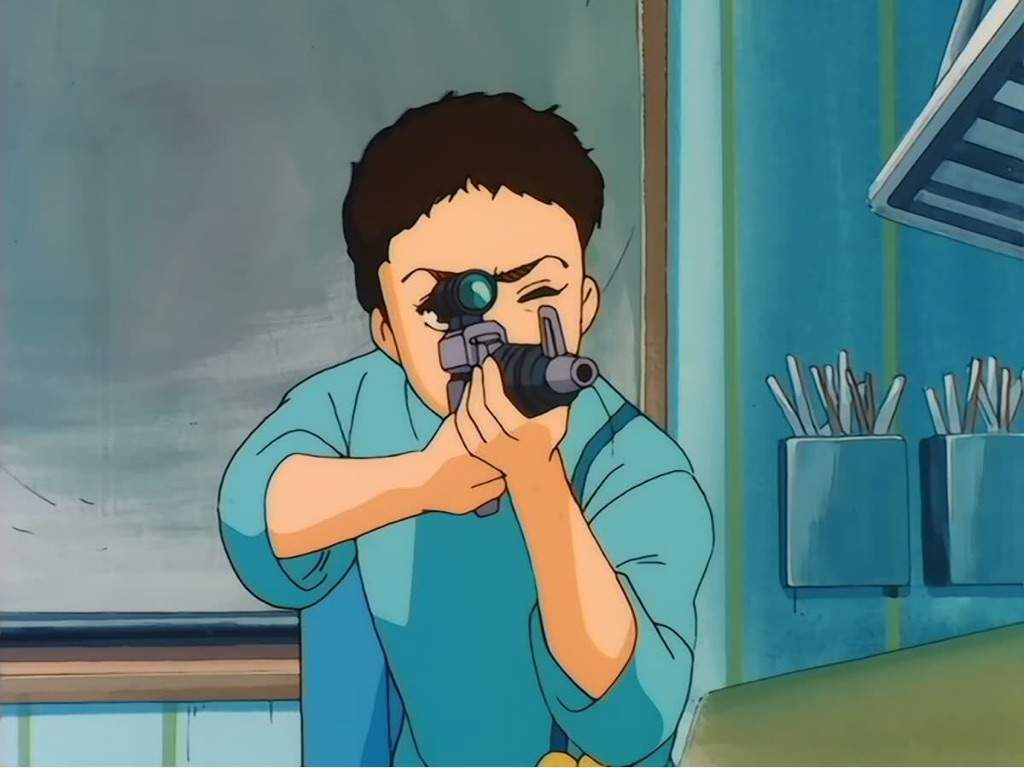
One of the ways that War in the Pocket effectively shows the horrors of war is through its main character, Alfred Izuruha. While most Gundam protagonists are pretty young, Alfred takes the cake at being a mere eleven. This exceptionally young age is effective in showing how everyone is roped into war, no matter the age. Alfred being a pilot would be kind of ridiculous, but, as war in the Pocket is committed to a higher caliber of realism than most Gundam entries, Alfred is somewhat of a bystander. This helps make Alfred a perfect protagonist for this deconstruction of Gundam. Remember how I stated earlier that many Gundam fans can feel conditioned to glorify its wars? Alfred is an embodiment of this: him and his friends perceive war as "cool" and they can't wait to see it in action. It's to the point where they seem to scoff at interactions that aren't violent. There's a very striking scene in which Alfred is being lectured by his mother while he's playing a video game. Alfred dismissively drones "Yes, mom," on and on while intentionally losing the video game by shooting at buildings instead of protecting them. Here we see how dismissive Alfred is towards someone who cares about him; caring not about improving himself, for all his efforts are put into his fantasies of war. Thanks to the somewhat glorified nature of war in Gundam, viewers are able to draw parallels between Gundam fans and Alfred. Alfred not being a pilot allows him to be a viewer, a bystander; someone who (for the majority of the show) has very little stake in the progression of the war, who's investment comes from a reason as shallow as "it looks cool." The very title and the corresponding eyecatch, War in the Pocket is indicative of Al's initial role. War is a mere game to Al, its tools can fit in his pocket; they're toys, mere instruments of entertainment. The beauty of War in the Pocket, then, is deconstructing this view and showing war as the beast it is. Toys are simple. Toys often aren't realistic. Toys don't hurt you.

The OVA's realism is shown in part through Bernard "Bernie" Wiseman, the main character to Al's protagonist. It is mostly through Bernie that the events of the OVA are seemingly put into motion. Like Al, Bernie gets some character development which is impressive given the short runtime. Bernie's role makes the plot more complex and realistic, for he's a Zeon soldier. All Gundam entries prior paint Zeon in a nigh-entirely villainous light. It's fitting that the show that attempts to turn Gundam on its head is one in which Zeon is shown in a nuanced light. Yes, Cyclops Team is a black ops terrorist cell (doing it six years before it was cool), though Bernie is a legitimately good person who ends up sacrificing his life for the greater good. It's also interesting that Bernie may also be somewhat of a reflection of viewer ideas. At the beginning of the OVA, Bernie is simply a nobody who talks big to Al. He's barely seen combat, yet he brags to Al that he's one more kill away from being promoted. Like some viewers, he has grandiose, romantic visions of war, imagining himself as a hero. Bernie, Al, and the viewer have the same progression of seeing war for the ugliness that it is, and like some viewers, he has an aversion to it, having an extremely pessimistic view towards death "all dying means is that you got unlucky." When he decides to take up the fight, it's for altruistic reasons, and only because he has no other option. And of course, when he does fight, the result isn't pretty. All in all, Bernie isn't the typical Gundam hero and it goes a long way in making the show distinct, brutally realistic, and meta in its depiction of war.
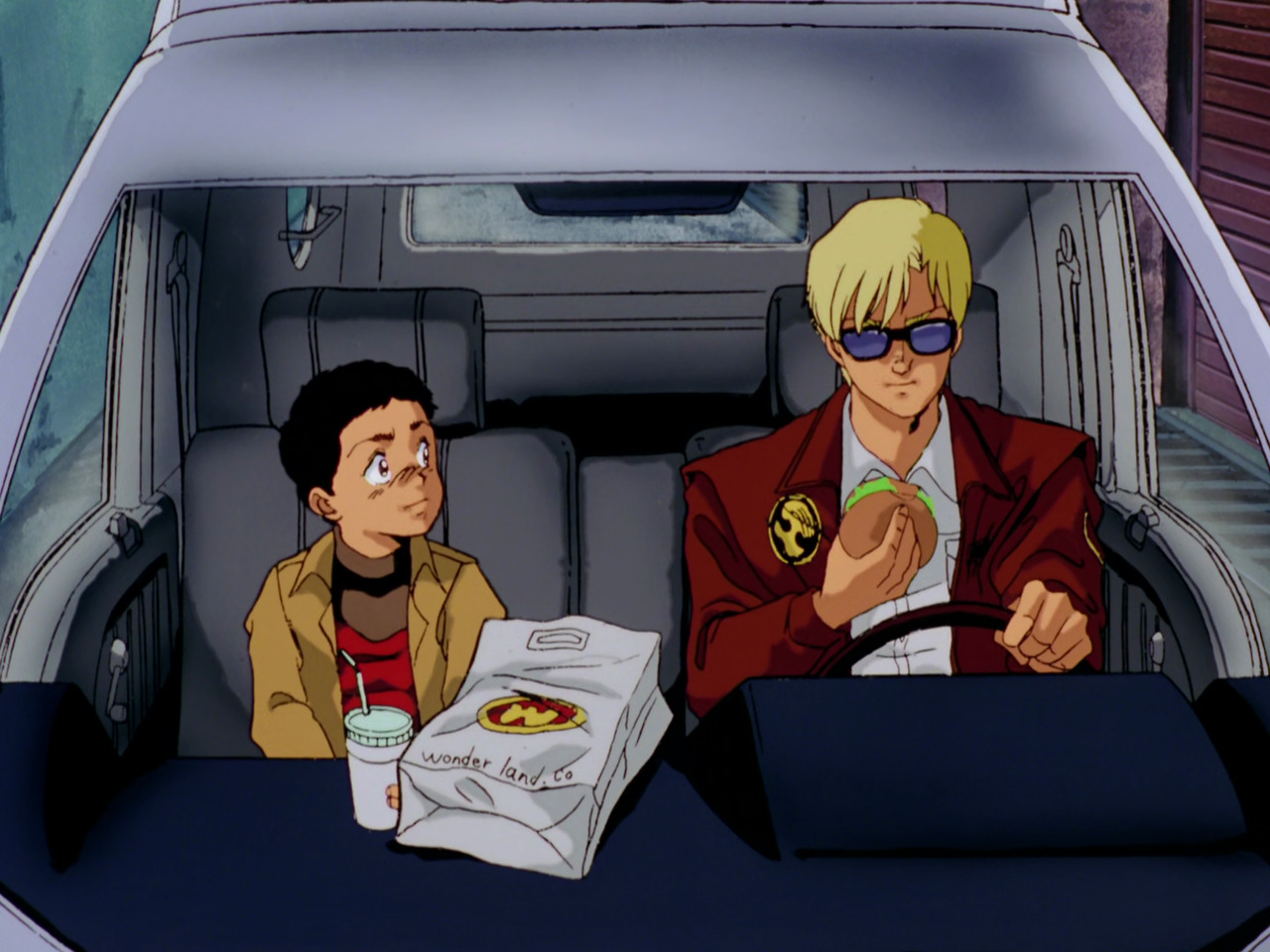
I find it pretty ingenious how the setting makes the fighting more realistic, thus making the limitation feel organic. War in the Pocket takes place in a space colony, so due to the risk of tearing a hole clean through the colony, there is nary a beam weapon in sight. Instead, the mobile suits must rely on more traditional rounds. As they are more similar to the weapons used in actual, modern-day war, making it harder to divorce the mecha action from actual combat. There's something horrifying about seeing a mobile suit riddled with machine gun rounds, the pilot seat painted with blood. I'm not sure the same effect would have been achieved via a beam gatling gun.
Speaking of setting, as I write this, I realize how brilliant it is that the show takes place during Christmas. Even a time of merriment isn't out of war's reach, showing that battle and tragedy can break out at any time. Events such as the Christmas Truce are the exception, not the rule.

The show is realistic in other ways that I appreciate. There aren't newtypes (Except for a possible vision by Al that's quite chilling) and romance between people of different sides in a war is fledgling and tragic, unlike how its more glamorous depiction in other Gundam media.
The production quality is great. It's an OVA so we're treated to quality animation. Battles are a lot more detailed and visceral; get used to a bit more blood than you're used to in your Gundam show. Given how the show pushes "War is Hell," your milleage may vary as to whether or not the fights being cool is a good thing. For what it's worth, they're so brutal that even if it doesn't help the message completely, it still pushes it. It helps that the Kampfer and Gundam Alex showcase destruction that is absolutely brutal and visceral. With Zeonic protagonists, we see a Gundam for the monster that it can be; this is helped by the fact that, when the Gundam first appears, its covered in armor which makes it look more menacing.
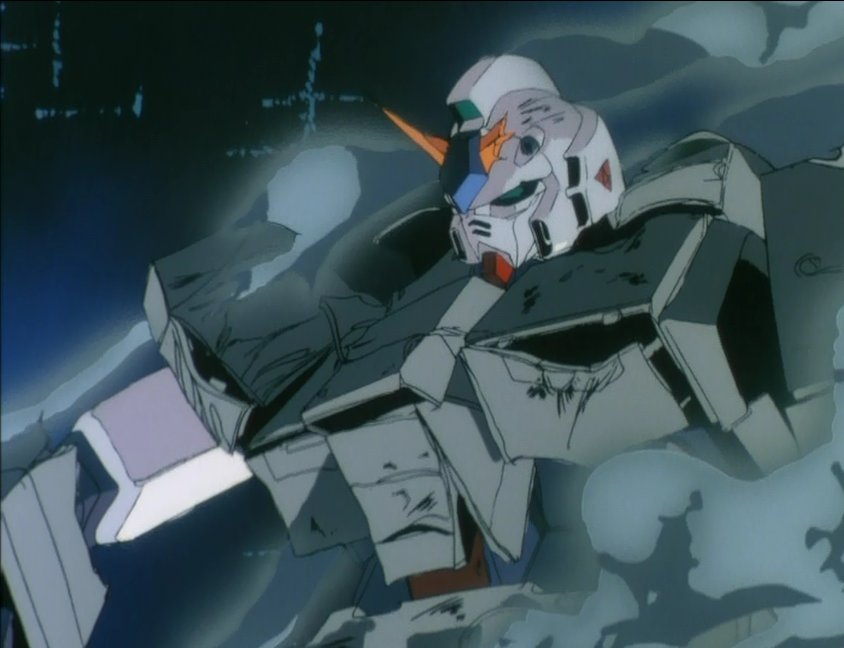
The music isn't phenomenal. It has good songs, but nothing too memorable, in my opinion. The dub's voice acting is hit or miss. Characters such as Bernie, Chris, and Al sound find but some minor characters sound a bit rough. Oh, and it should be noted that if the characters speak fast, you may be watching a sped up version of the show. Each episode should be about 30 minutes long, not the standard ~23 minutes.
The ending is absolutely great and gut-wrenching. Irony is abound as viewers know that no matter if Bernie defeats the Gundam or not, the colony will still be nuked. There is a glimmer of hope when we discover that the man in charge of the nuclear detonation has been apprehended, thus sparing the colony. The irony and tragedy returns as Bernie wages battle with the formidable Alex, still under the impression that if he does not, the colony will be destroyed. His heroic, yet ignorant actions lead to his gruesome demise. With this, Al's transformation is complete and we see just how broken he has become. He appreciates interpersonal connections more (as shown by his more warm reception of his parents), though at a dire cost. Al has seen war for what it is and he can't help but break down crying. His friends, having no such development, are oblivious. "Kids just being kids," is now made horrifying, as they exclaim, "Don't cry, Al. Soon there'll be an even bigger war with even cooler mobile suits!" It is clear now that this is the viewer desensitized to war. There will always be another Gundam, there will always be more mobile suits. There will always be the war that somewhat trivialized simply because it's featured in a Gundam show.
We return to etymology of "gundam": "gun" and "freedom." The show tragically reaffirms these parts of a whole. It doesn't really need to be stated how it goes about showing how the mobile suits are weapons. In the final battle, they rendered Bernie as naught but hamburger. But what about freedom? Is it ultimately rendered unimportant because the freedom Bernie found himself dying for was ultimately pointless? I think it's a lot more nuanced than that. Freedom is not important because it's a physical state of being, but because it's an ideal, a metaphysical state of mind. Everyone wants to fight for freedom, but as it's an ideal, it means something else to every person. In a way, this makes freedom even more beautiful and worthy of protection. On the other hand, it makes it tragic and unattainable, making war seem even more pointless.I've been gushing about War in the Pocket this entire time, so why, then, does it does it not have a perfect score? To be honest, it's probably its length. Yes, it does a wonderful job of developing characters in such a short timeframe, but it can only do so much. While this is by far more dismal than Zeta, and thus does a better job of showcasing the horror of war, I ultimately cared more about the characters in Zeta and it impacted me more when bad things happened to them. Again, this show is really sad, but it's more sad that it happened in general and not so much that it happened to Al or Bernie. Not to mention, we get very little of Christine. This doesn't detract from the show much, for me, but it's why it doesn't net a perfect score for me.
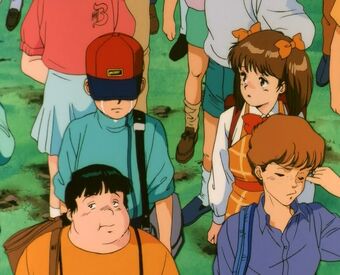
But this show is still very well done. It's one of the best Gundam shows I've seen and is more effective in its particular theme than any Gundam show before or after it, and for that, I recommend giving it a watch.
9.2/10
A-

ChillLaChill
100/100This show is so succinctly distinct that it's easy to see this as it's own anti-war piece separate from mainline GundamContinue on AniListI was way too young to appreciate War in the Pocket. In fact, I was only one year older than the main protagonist of the series when I did. My main reason for disliking this show was because it lacked giant over-the-top fights with pilots screaming at each other. After rewatching this at a more mature age, I'm so glad it's not that.
I finally realize how well presented this Gundam OVA is, and how it expertly goes about its message. It's very down-to-earth in its presentation. The characters are grounded enough for the world to feel real and even relatable. Sure majority of the cast are all young kids of varying ages, but it's necessary to portray their naivete. The character pieces work so well here, playing up a lot of the common behaviours of a clueless young child with fixed ideas of war.
War in the Pocket is short and sweet without overstaying its welcome. It manages to maintain a somber tone throughout the entire thing. There's nothing holding back this series' emotional punches, and the main two protagonists receive great development throughout to give it that. This is one of the best-animated war critiques I have watched in the Gundam UC Saga, that's got a lot of relevance outside of its medium. It's hard not to deny those times when young boys would play war in the playground, or vicariously living the epic battles through other Gundam series, myself included. Then it hits you with the cold reality by just showing violence as it is, pointless, and without getting as preachy as Kira Yamato at a Sunday Mass. This is a war that's being fought between two sides, and there's no good or bad guys (well except for the Zabis), just people. War in the Pocket is something young viewers won't respect as the focus isn't on the fights. Ironically, much like the kid, I was sort of naive myself; I was a huge fan of witnessing Gundam Wing's hooah approach to conflict resolution if that's any indication. I had a clear disdain for this particular OVA when I was 12, which is to say that this is not a Gundam for kids. Not because of it's of its subject matter, but because the anti-war nuances will be lost on young minds who simply want to see explosions and not a thought-provoking piece of anime. It really isn't a happy-go-lucky story, although many Gundam fans can attest to the bittersweet, borderline depressing storytelling. Really the only problem with War in the Pocket is that it's just not the Gundam many fans will be used to, as it places the emphasis on the message over being strictly media-entertainment. Personally, this is all for the better as it cements itself as a timeless anime with so much heart.
I'm so glad I was able to re-evaluate War in the Pocket because I would've continued to harbour sour feelings about it, all of which were rooted within the same kind of perspective on life that this kid used to have. The kid continually obsessing over the Zeon's being cooler reminded me of the days I used to think about how cool Nazi Germany looked before I had ever stepped into a WW2 history class. There are a lot of specific merits of this show that you have to keep in mind while going into this, which is why it has plenty of rewatch value. This Gundam series is so tonally different from the rest that I highly recommend that you binge this, even if you're unfamiliar with Universal Century history. War in the Pocket won't get your blood pumping with adrenaline, but I can guarantee you that it will kick you in the gut emotionally.
SIMILAR ANIMES YOU MAY LIKE
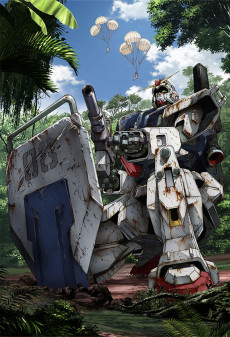 OVA AdventureKidou Senshi Gundam: Dai 08 MS Shotai
OVA AdventureKidou Senshi Gundam: Dai 08 MS Shotai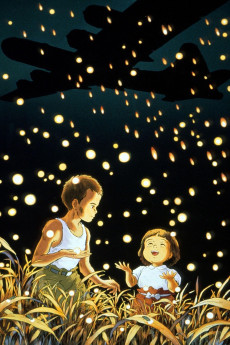 MOVIE DramaHotaru no Haka
MOVIE DramaHotaru no Haka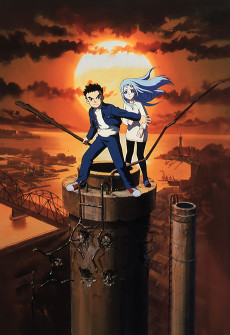 ANIME AdventureIma, Soko ni Iru Boku
ANIME AdventureIma, Soko ni Iru Boku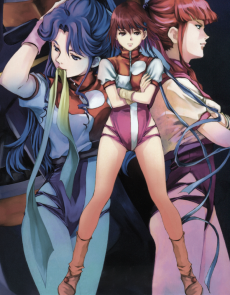 OVA ActionTop wo Nerae! GunBuster
OVA ActionTop wo Nerae! GunBuster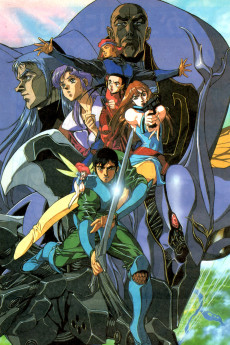 ANIME AdventureSeisenshi Dunbine
ANIME AdventureSeisenshi Dunbine
SCORE
- (3.95/5)
TRAILER
MORE INFO
Ended inAugust 25, 1989
Main Studio Sunrise
Favorited by 1,034 Users


